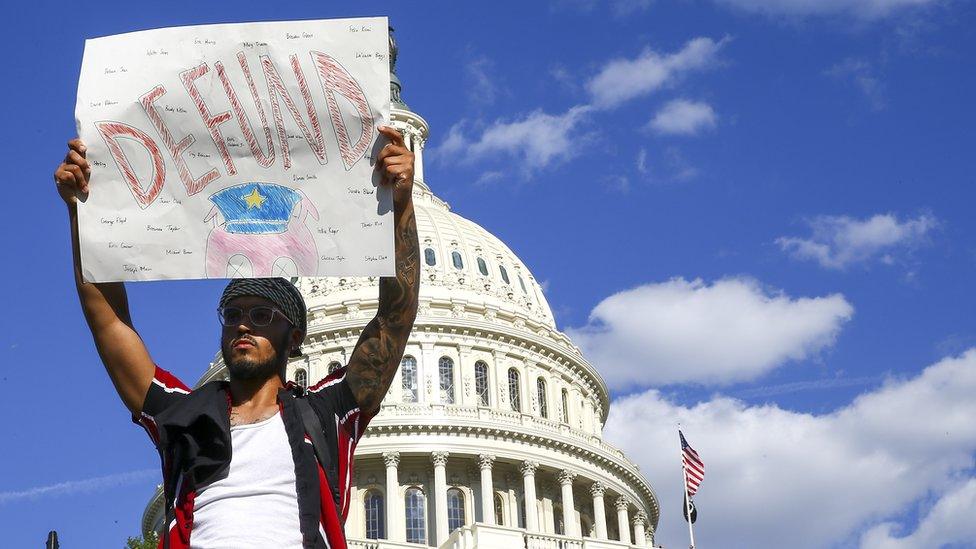George Floyd's funeral hears calls for racial justice
- Published
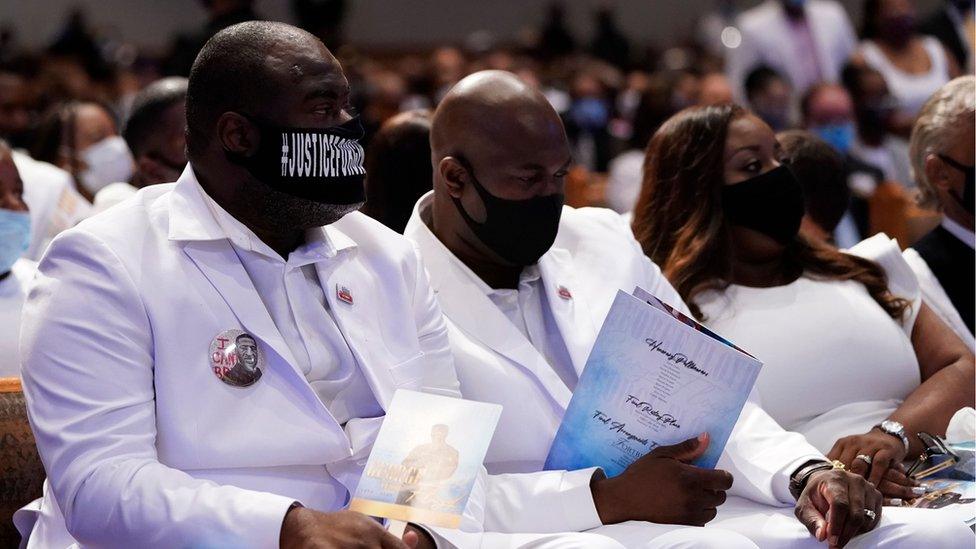
Mourners wore "I can't breathe" badges at the service
The funeral of George Floyd, an African American whose death in police custody spawned global outrage, has heard impassioned pleas for racial justice.
Speakers in the church in Houston, Texas, lined up to remember a man whose "crime was that he was born black".
Mr Floyd died in Minneapolis last month as a white police officer held a knee on his neck for nearly nine minutes, his final moments filmed on phones.
Four police officers involved have been sacked and charged over his death.
His coffin was taken from the church driven in a motorcade to the Houston Memorial Gardens where he was to be buried beside his mother.
George Floyd's niece: 'This is not just murder, but a hate crime'
One of Mr Floyd's nieces, Brooke Williams, called for a change in laws which, she argued, were designed to disadvantage black people.
"Why must this system be corrupt and broken?" she asked. "Laws were already put in place for the African-American system to fail. And these laws need to be changed. No more hate crimes, please! Someone said 'Make America Great Again', but when has America ever been great?"
Republican President Donald Trump's Democratic opponent in the November presidential election, Joe Biden, addressed the service in a video message, saying: "When there is justice for George Floyd, we will truly be on our way to racial justice in America."
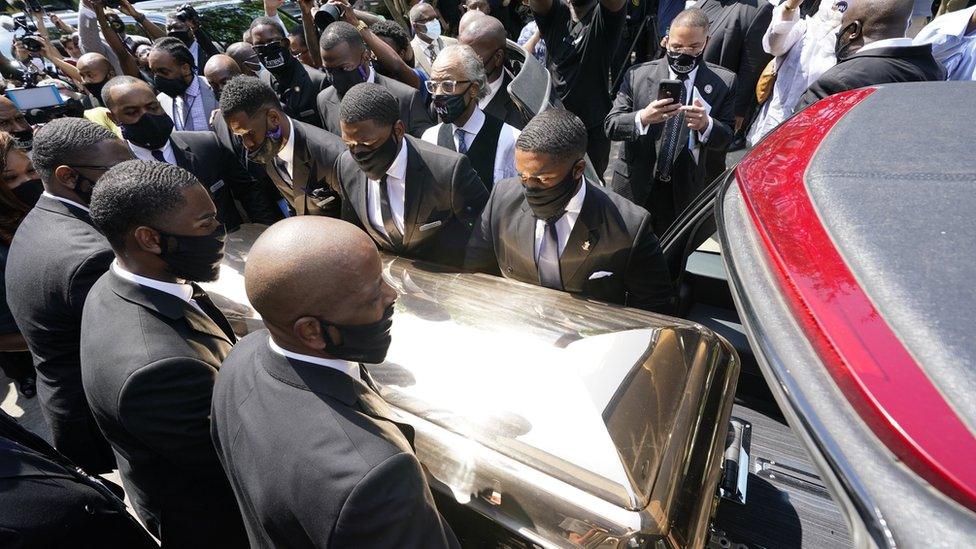
George Floyd's body was loaded into a hearse
Mr Biden has sharply criticised Mr Trump, accusing him at the weekend of making "despicable" speculative remarks about Mr Floyd.
But the Democratic politician was himself recently accused of taking black American votes for granted when he said African Americans "ain't black" if they even considered voting for Mr Trump.
What was said at the funeral?
The service was held at the Fountain of Praise church, attended by some 500 guests, external including politicians and celebrities.
"George Floyd was not expendable - this is why we're here," said Al Green, the local Democratic congressman. "His crime was that he was born black."
Veteran civil rights activist Reverend Al Sharpton told the service: "All over the world I see grandchildren of slave masters tearing down slave masters' statues."
Talking about Mr Floyd's difficult life, he said: "God took the rejected stone and made him the cornerstone of a movement that's gonna change the whole wide world."
In Minnesota, Governor Tim Walz called on people to honour the funeral by observing silence for eight minutes and 46 seconds, the time Mr Floyd was pinned to the ground before he died.
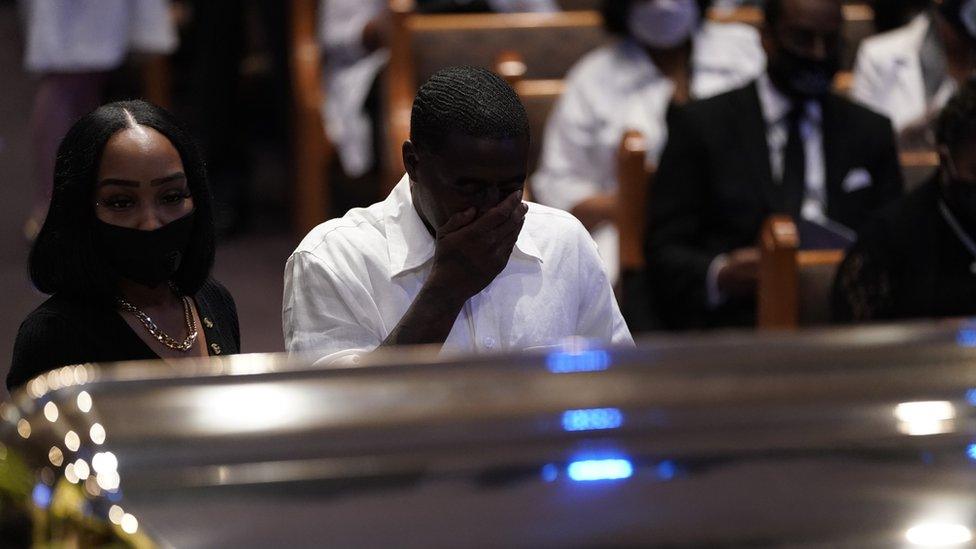
Mourners paid respects before the service
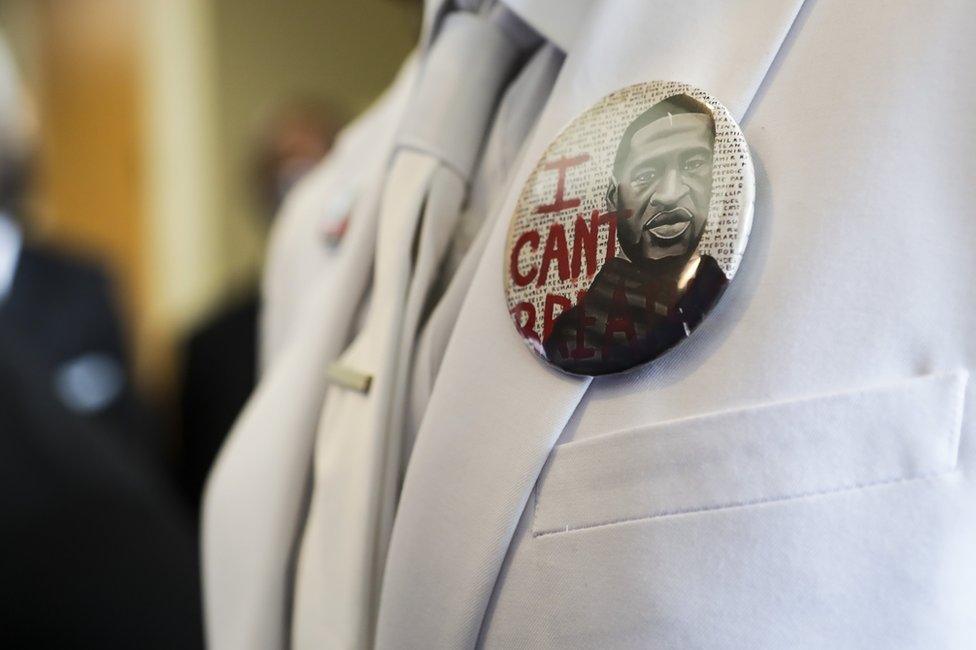
Many wore "I can't breathe" badges
Mr Floyd's coffin was taken to a cemetery in Pearland, south of Houston, for a private burial ceremony. For the last mile of the procession it was conveyed in a horse-drawn carriage.
Barriers were erected along the route to allow members of the public to pay their respects, external safely as the procession passed.
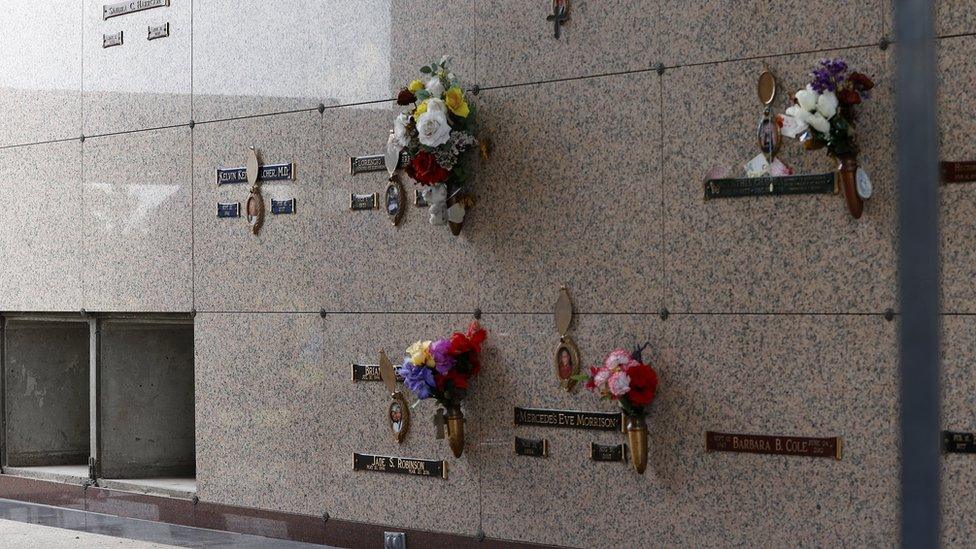
Mr Floyd will be interred in a mausoleum in Pearland
His body was on display at the church for six hours on Monday.
George Floyd's ex partner: 'Gianna doesn't have a father'
Memorial services were also held in Minneapolis and North Carolina, where Mr Floyd was born.
What did Biden say about Floyd's family?
After visiting the family on Monday, the Democratic candidate told CBS: "His little daughter was there, the one who said 'daddy's going to change the world', and I think her daddy is going to change the world."
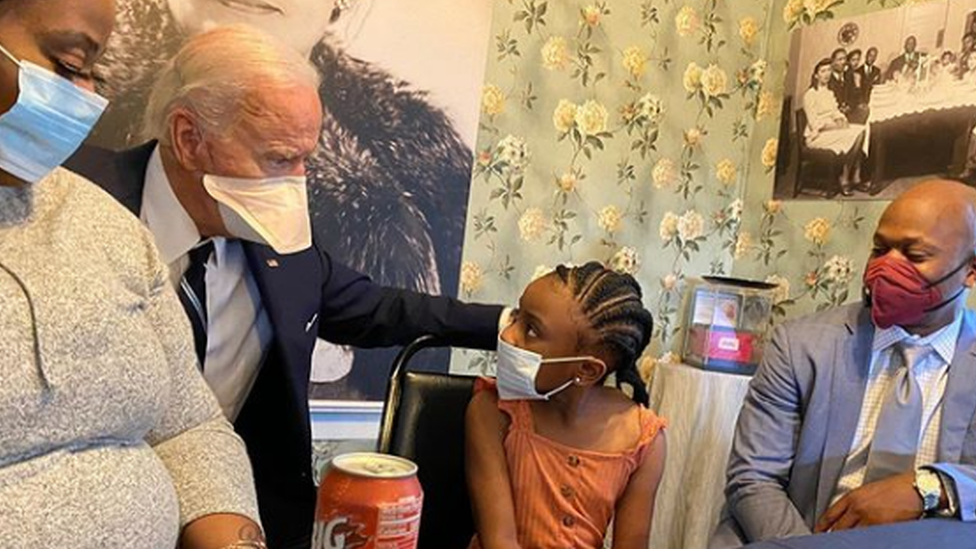
Joe Biden meeting George Floyd's family
"I think what happened here is one of the great inflection points in American history, for real, in terms of civil liberties, civil rights and just treating people with dignity."
Joe Biden: George Floyd death a "great inflection point in American history"
Floyd family spokesman Benjamin Crump, who tweeted a photo of the meeting, external, said Mr Floyd's relatives welcomed Mr Biden's comments.
"That compassion meant the world to this grieving family," he added.

More on George Floyd's death
VIEWPOINT: Tipping point for racially divided nation
TIMELINE: Recent black deaths at hands of police
BACKGROUND: Five pieces of context to understand the protests
CRIME AND JUSTICE: How are African Americans treated?

How have the protests spread?
Anti-racism protests started by Mr Floyd's death are now entering their third week in the US. Huge rallies have been held in several cities, including Washington DC, New York, Chicago, Los Angeles and San Francisco.
"Keep pushing": Washington DC protesters on keeping the momentum going
Sensitivity to racism has grown in other Western countries in response to George Floyd's death:
The mayor of London, Sadiq Khan, set up a commission to review the city's landmarks to ensure they reflect its diversity, days after the statue of a slave trader was torn down in Bristol.
In the Belgian city of Antwerp, a statue of King Leopold II, who ruled during a period of brutal colonisation in Africa, was taken down
- Published10 June 2020
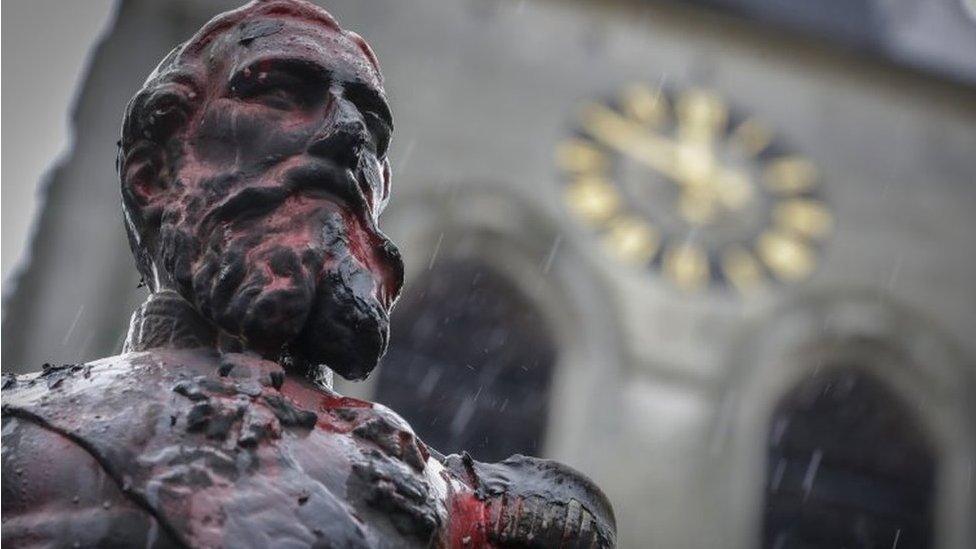
- Published9 June 2020
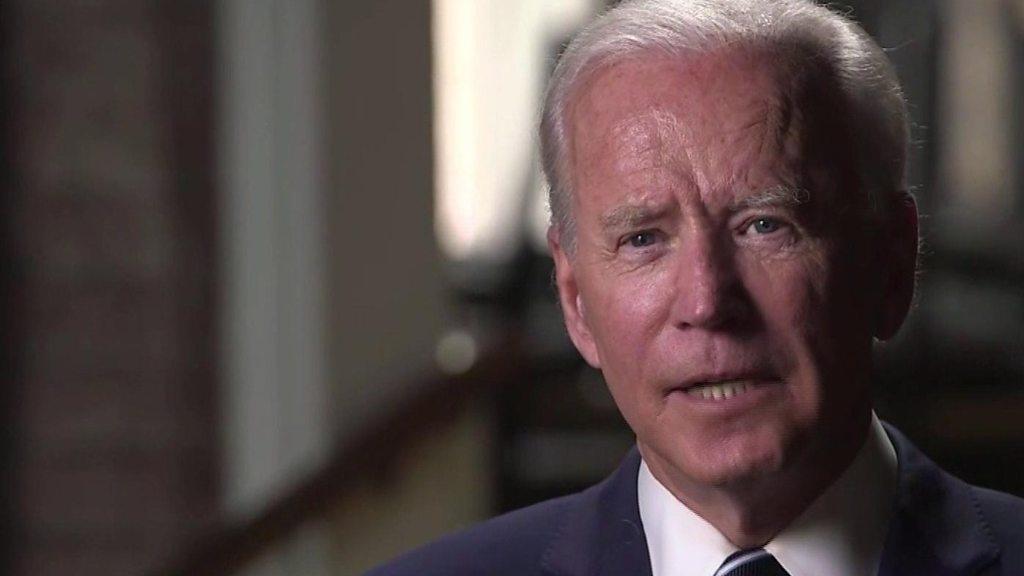
- Published22 April 2021
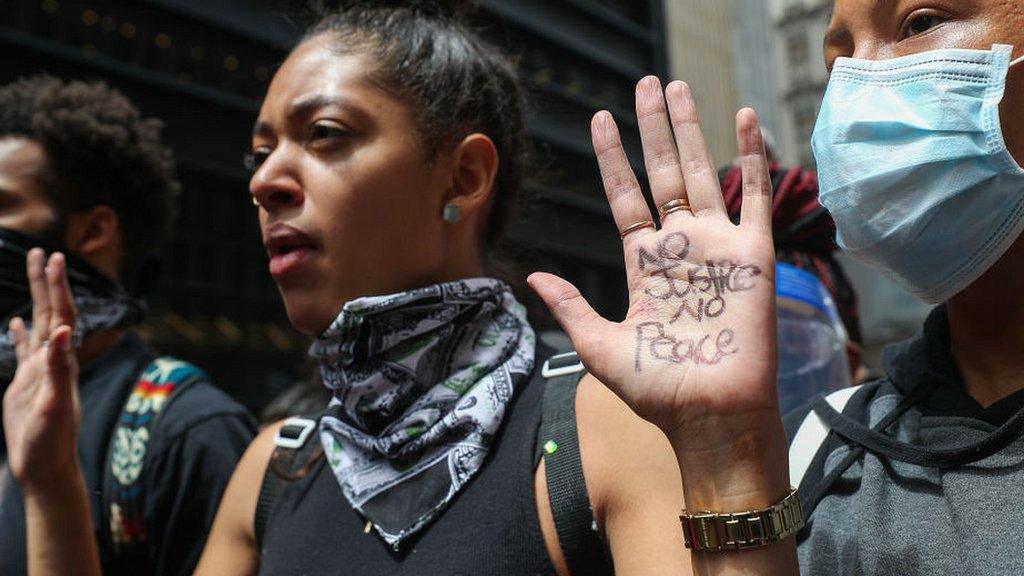
- Published8 June 2020
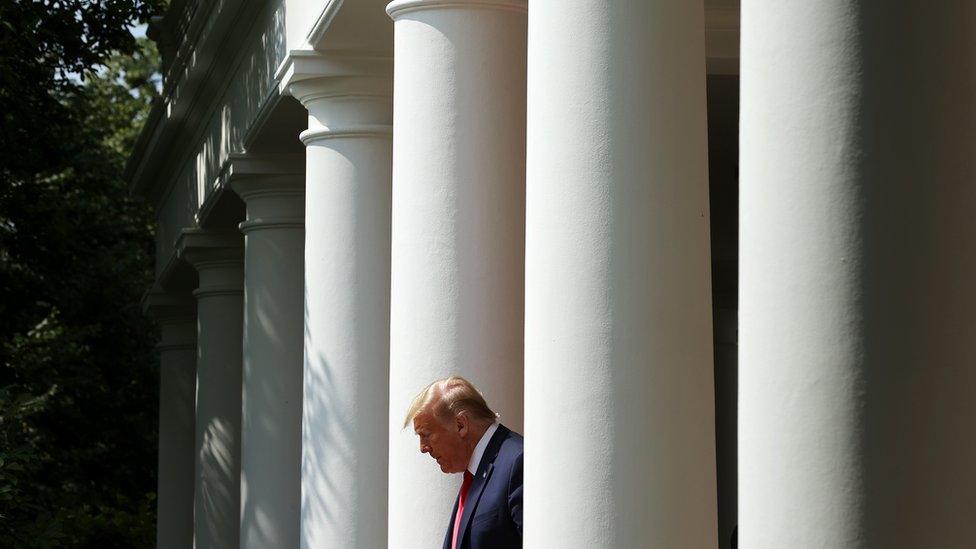
- Published8 June 2020
